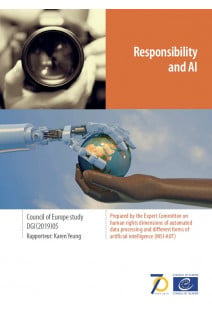A study of the implications of advanced digital technologies (including AI systems) for the concept of responsibility within a human rights framework.
Advanced digital technologies and services, including AI tools, come with extraordinary promise, particularly in the form of enhanced efficiency, accuracy, timeliness and convenience across a wide range of services. Yet the emergence of these technologies is also accompanied by rising public anxiety regarding their potentially damaging effects for individuals, for vulnerable groups and for society more generally.
Given their pervasiveness in daily life, we must acquire a deeper understanding of their impact on the exercise of human rights and fundamental freedoms, and we should carefully consider how to allocate responsibility in case of adverse consequences. If we are to take human rights seriously in a globally connected digital age, we cannot allow the power of our advanced digital technologies and systems, and those who wield and derive benefits from them, to be accrued and exercised without responsibility.
Effective and democratically legitimised governance arrangements and enforcement mechanisms must be put in place to ensure that responsibility for the risks, harms and wrongs arising from the operation of advanced digital technologies are duly allocated.




